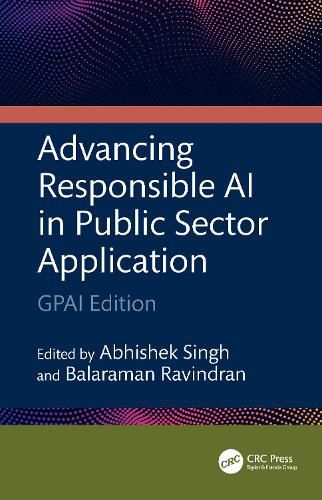Readings Newsletter
Become a Readings Member to make your shopping experience even easier.
Sign in or sign up for free!
You’re not far away from qualifying for FREE standard shipping within Australia
You’ve qualified for FREE standard shipping within Australia
The cart is loading…






Responsible use of AI in public sector applications requires engagement with various technical and non-technical areas such as human rights, inclusion, diversity, innovation, and economic growth. The book covers topics spanning the technological socio-economic spectrum including potential of AI/ML technologies to address social and political inequities, privacy enhancing technologies for datasets, friction less data sharing and data stewardship models, regional/geographical inequities in extraction and so forth.
Features:
Focuses on technical aspects of responsible AI in the public sector. Covers a wide range of topics spanning the technological socio-economic spectrum. Presents viewpoints from the public sector agencies as well as from practitioners. Discusses privacy enhancing technologies for collecting, processing and storing datasets, and friction. Reviews frameworks to identify and address biased AI outcomes in the design, development and use of AI.
This book is aimed at professionals, researchers and students in artificial intelligence, computer science and engineering, policy makers, social scientists, economists, and lawyers.
$9.00 standard shipping within Australia
FREE standard shipping within Australia for orders over $100.00
Express & International shipping calculated at checkout
Responsible use of AI in public sector applications requires engagement with various technical and non-technical areas such as human rights, inclusion, diversity, innovation, and economic growth. The book covers topics spanning the technological socio-economic spectrum including potential of AI/ML technologies to address social and political inequities, privacy enhancing technologies for datasets, friction less data sharing and data stewardship models, regional/geographical inequities in extraction and so forth.
Features:
Focuses on technical aspects of responsible AI in the public sector. Covers a wide range of topics spanning the technological socio-economic spectrum. Presents viewpoints from the public sector agencies as well as from practitioners. Discusses privacy enhancing technologies for collecting, processing and storing datasets, and friction. Reviews frameworks to identify and address biased AI outcomes in the design, development and use of AI.
This book is aimed at professionals, researchers and students in artificial intelligence, computer science and engineering, policy makers, social scientists, economists, and lawyers.